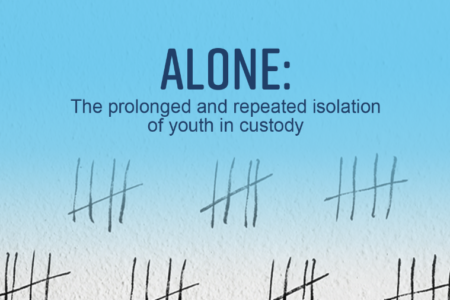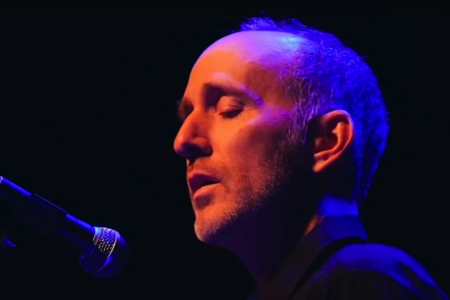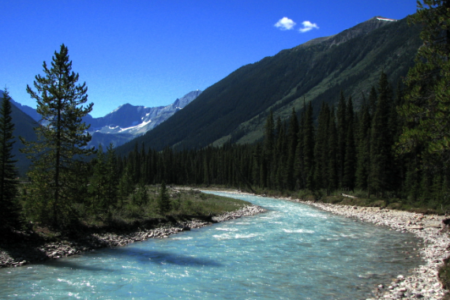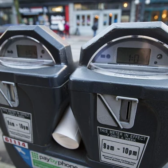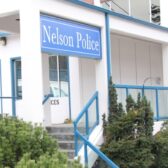OP/ED: Water metres -- not that scary
I was surprised at the reaction the public has had towards water metres. Not floored, change is uncomfortable and there is almost always a backlash. What surprised me is how vehement and ongoing the reaction has been. I’ve been fortunate enough to have travelled quite a bit and lived in many parts of the world. In most places I’ve been water is treated as a precious resource and water metres are pretty standard. For me it seems like a natural progression.
Yes, water is a necessity and should be free. But if you think about it, that hasn’t changed. No one is charging you if you have a drink from the river or lake – although I highly recommend boiling it or throwing in a chlorine tablet. If you pull water from your own well, that is still free other than your personal infrastructure that you bought. However, the idea that water should be drawn from its source, hauled to a treatment facility, treated and then transported to your home to flow freely with no extra cost or restraint is … unusual to say the least.
It is a service that the city provides and it costs money for the infrastructure and wages for the workers. The way I understand things, if a service is provided a fee is charged. When people don’t limit the quantity of water they use, it puts a strain on existing infrastructure and it costs taxpayers money for upgrades and replacements. Why should the city suck up the cost when people leave their hoses on all night? Who hasn’t seen water running off of people’s lawns and out into the street creating a pool on a hot summer day? Who hasn’t had to avoid a sprinkler in the middle of the day when they were walking down a sidewalk? We are wasteful and ultimately if we aren’t forced to conserve, the city is going to have to pay several million dollars upgrading the water treatment facility. And by the city, I mean taxpayers.
What if it was electricity? Should that be delivered to our door without limit? Can you imagine what it would be like to have unlimited electricity? Or gas? Just deliver it to your door and let you have as much as you want… That is not going to happen for the same reasons it shouldn’t happen with water. I acknowledge that it isn’t an exact comparison. We need water to live and we are surrounded by it. That is not the case with electricity and gas. But that just means water should be distributed at a more affordable rate than gas or electricity. Still not a free-for-all.
People have been saying “give us a chance to conserve!” Well, we have had chances. What more do you want? We know how to conserve. We’ve been given alternating days of the week to water. There is no limit to the paperwork and information out there on water conservation. We’ve been told how to water our garden, to turn off the water when we brush our teeth, keep showers under three minutes, water in the late evening or early morning, wash our cars only when absolutely necessary, etc. The information and opportunity has been there all along. This isn’t just a local issue. We get bombarded with water conservation on a provincial, national and international level as well.
Now people are sounding like a scolded child being threatened with a time out “No, I didn’t mean it. I swear I’ll be good this time!” This has been on the table for over a decade. It’s become a reality in many surrounding communities. There has been plenty of time for us to demonstrate that we can conserve. We haven’t done that.
I’m not saying that the way it’s come about or been set up is perfect. I truly believe that the city is missing out on an opportunity to really educate about water conservation and raise community awareness. They should take the opportunity to dive into the subject. Reach out to urban gardeners and host seminars on water harvesting, permaculture, xeriscaping, etc. Give everyone the resources they need to make this work for them on an individual level.
When a recycling program was started in my hometown in Alberta, the city gave everyone blue bins. That still happens in many cities. What about giving rain barrels to residents? Sure it’s an expense, but in the long run wouldn’t it be worthwhile? Wouldn’t a gesture like that tell the residents “Hey, we want to help you make this work!”
I went to a talk on permaculture last year where I learned that the most precipitation we get in Grand Forks comes as snow and that is what we should focus on harvesting. In hindsight that seems obvious, but it had never crossed my mind before. Now I look out my window and see a lake in my backyard that will soon disappear and be replaced with a dry garden that needs watering. If I had a better system, I could be collecting much of that melted snow for my garden. With my small garden, it might even last most of the growing season.
The city (with WildSafeBC) has hired a coordinator to help educate on wildlife (ahem … deer). That’s fantastic. What about having someone come in for a few months and educate people on how to make the water metres work for them? It’s possible that everyone could be saving money by using less water than they did before. Wouldn’t that be a happy surprise? One of the best things about water metres is that you won’t be paying for water that you don’t use. If you go on a long (or even short) vacation, you won’t be paying anything (unless you leave your sprinklers on).
Another concern raised by protesters is that the costs could quickly sky rocket. Indeed that is a scary possibility, especially after the recent rate increases for electricity. Once the water metres are in place, we won’t have any control over rates. Perhaps the city can make a gesture of good faith by adding a clause that limits rate increases. For example, the city can’t raise the rates more than _X_% every _X_ years.
Ultimately people need to understand that drinking water is a right and a necessity. Purified water that is pumped directly into your house in unlimited quantities is not. The city needs to understand that this is a scary change for people and they should do everything they can to help them through it. Don’t make casual reassurances that it’s all going to be ok in the long run. Put some effort into backing up those claims. For many people in town, life is barely affordable as it is without the fear that their water supply will be cut off if they can’t afford the bill.




